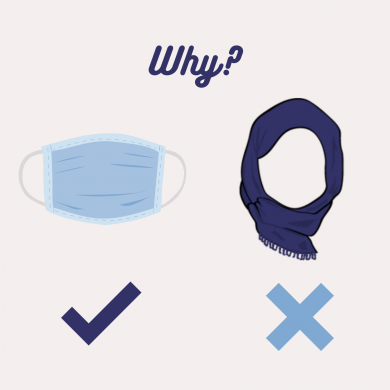It’s that time of the year again when busy Year 12 students are putting together their university preferences. Twelve years of schooling has built up to this moment and with your family, friends, and your own aspirations you are waiting eagerly to see the direction your new life will take, you may start to feel overwhelmed as to what choice to make.
Here are a few points that may give you some clarity when making this important decision:
1. Ask yourself why you are studying
Are you studying because you feel like you need to ‘check this box’, because of peer pressure, for social status, or is it to pursue your dream career or interests? Check your intentions and try to match your talents and personality to the degree you choose.
Most of us strive towards a job that will help people, and that is the best of intentions. If your intention is to help people, remember that almost every job is helping people in one way or the other. So don’t limit your options only to the cliché jobs which help people, such as doctors for example. Keep your mind open and remember that if helping people is at the core, you will find fulfilment in whatever you choose.
Above all, ask yourself if the pathway you choose will get you to your ultimate goal; Allah (swt)’s pleasure and an eternal abode in paradise.
2. Don’t limit yourself to traditional degrees
Medicine, law and engineering are not the only options nor are they the only measures of success. Be open and explore your talents. Are you creative and good with technology? Maybe graphic design is for you. If you’re passionate about telling stories, using cameras and video editing, perhaps study film production. Maybe you know a thing or two about plants and would love to contribute to conservation and landscape restoration, why not study horticulture?
Think especially about gaps where society is in need of Muslims such as journalism, clothing designers, social workers and psychologists.
Additionally, we all want to achieve success, but that doesn’t only come from completing university degrees. Consider some of the many other pathways, such as educational institutions apart from universities (e.g. TAFE).
3. Study what you’re interested in, don’t worry about ‘wasting’ a high ATAR
Getting a high ATAR is great as it widens the scope of the degrees you can get into straight after year 12. If you limit yourself only to the courses that require high ATARs, you’re doing the exact opposite and narrowing your options! Keep in mind as well, that entry scores reflect the demand for a course, not its quality. In my case, the entry score for the course I chose was more than 10 points under my ATAR but it was the best decision I made. So if you get a high ATAR, reward yourself by picking the course you want.
4. Speak to those who have gone into the degree you’re looking into
Advice from people who have done the course can give you an invaluable insight into what it will be like. You can also check out online student review websites such as Student VIP (click here). However, keep in mind that everyone has their own experiences and what happens for one person may not happen for another.
5. Consider locations
Matters like accommodation and transport, which sound like small issues, can have a huge effect on your overall university experience. As a general rule, the closer the uni is to your house, the better. Commuting for nearly two hours (which is common for those who live in Melbourne’s outer suburbs) means you have to leave at dawn and be back at dusk. It becomes difficult to find the time to study and get enough sleep, let alone all the other important aspects in your life apart from studying. It’s a real energy drainer too.
Also, as a personal recommendation, I would say that no course or job would be worth sacrificing proximity to your family. In the end, the purpose of your career should be to allow you to live a comfortable life with your family, not be a goal in and of itself. You will always be replaceable in your job but your family will be there for you always. Especially your parents who have sacrificed so much for you to get to where you are today.
6. Do your part but accept qadar (destiny)
Maybe you won’t get in to your preferred choice even after doing all the necessary research and studying as hard as you could. That’s ok too. Studying and your career is only one part of your life, it’s not everything. Everyone will have a different journey and sometimes you may not perceive the inherent goodness in missing out on the course you wanted. Remember this hadith attributed to the Holy Prophet (saw):
اعْلَمْ أَنَّ مَا أَخْطَأَك لَمْ يَكُنْ لِيُصِيبَك، وَمَا أَصَابَك لَمْ يَكُنْ لِيُخْطِئَك
Know that what has passed you by [and you have failed to attain] was not going to befall you, and what has befallen you was not going to pass you by.
7. Reputation is not everything
When it comes to picking a university, you should think about much more than just the apparent reputation of the institution.
Keep your mind open to all universities and pick what suits you best. For example, if you find the same degree in two different universities, choose the one that’s closest to your house; you’ll end up with the same degree at the end of the day and less travel time which is invaluable.
Consider location, campus facilities, ethics of the university and even demographics (eg. a place with more Muslims will generally cater better to Muslim students). It all depends on what’s important to you.
8. Visit the campus in your own time
Attending open days and orientation events are great, but it can be hard to get a sense of what a real day at university will be like. Walk around the campus in your own time to see it in it’s natural state, away from the sparkly impression the uni is trying to make.
9. Know that you can change
If for some reason you discover later on that the degree you got into isn’t for you, you can always change. It’s not a life sentence. Most people change their career multiple times over their lifetime. Further, degrees are becoming increasingly focused on transferrable skills as opposed to specific skills with around “40 per cent of university education employees have[ing] a degree outside their primary areas of work[1]”.
… and remember
Although sometimes it may feel like this, studying is not just about getting a job. It can be a great place for self-development and learning. Sometimes the subjects you learn most in are not the ones in which you achieve the highest scores (this was definitely true for me). Learning can happen outside of classes in your interactions with others, be they positive or negative, and it is these times which will teach you important lessons and stay with you for the rest of your life.
Good luck in this new chapter in your life!
Extra resources:
For more in-depth advice, have a look at Choosing a University series: https://theconversation.com/au/topics/choosing-a-university-13049
To compare University courses visit https://www.gooduniversitiesguide.com.au
[1] https://www.smh.com.au/business/workplace/there-is-no-such-thing-as-a-job-for-life-anymore-20160223-gn141j.html





